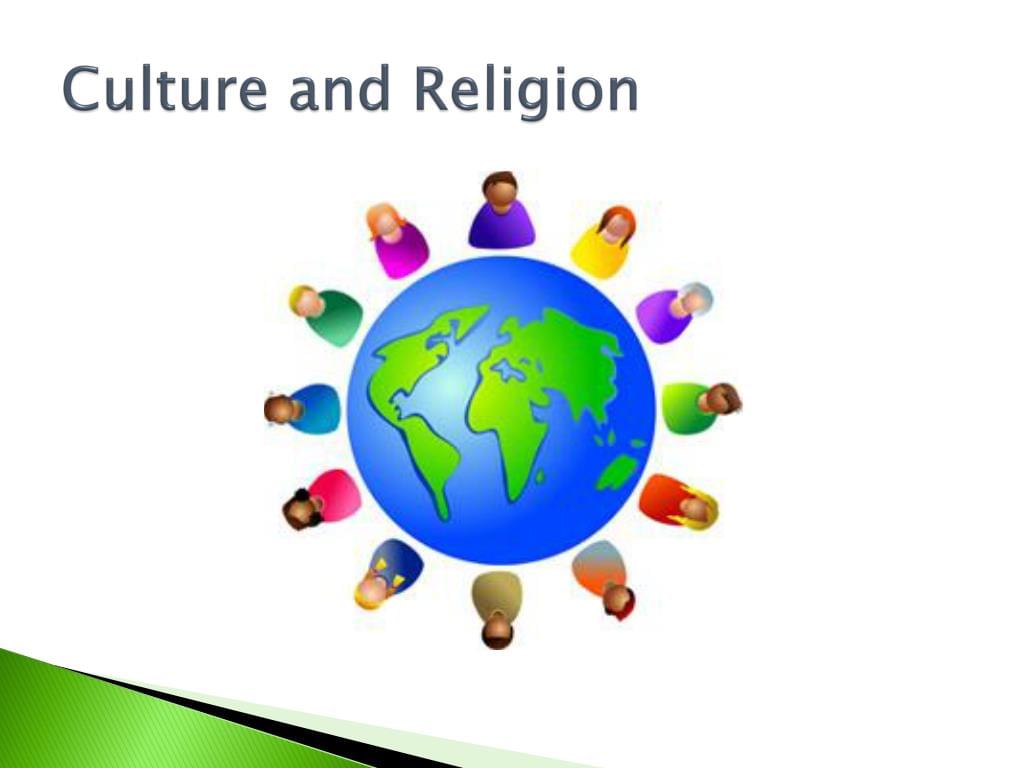Religion, belief, and culture should be recognized as potential sources of moral purpose and personal strength in healthcare, improving the well-being of both clinicians and patients in the midst of illness, healing, suffering, and death. Communication between doctors and patients, as well as communication among healthcare staff, should be sensitive to the welfare benefits of religion, belief, and culture. Doctors should respect patients’ religious and cultural beliefs, taking into account their importance in treatment and care preferences. Good doctors are aware of their own and others’ beliefs. They believe that understanding the importance of religion, belief, and culture to patients and colleagues is best for patient welfare. The sensitive navigation of differences between people’s religions, beliefs, and cultures is part of doctors’ civic obligations, and in the UK, doctors should follow the General Medical Council and Department of Health’s guidance. Particular attention should be paid to any apparent conflict between clinical judgment or normal practices and a patient’s culture, religion, or belief. The religion or culture of doctors may play an important role in promoting adherence to this good practice. In all cases, doctors’ conduct should be governed by the law and any existing arrangements for conscientious objection.
Recognizing the place of religion and culture in healthcare
Religion, belief and culture should be recognized in healthcare as potential sources of moral purpose and personal strength amidst the experience of ill-health, healing, suffering and dying. They should not be viewed solely or primarily as sources of problems in the delivery and reception of care. Rather, religion, belief and culture can mutually enhance the welfare of both clinicians and patients amidst the everyday challenges of patient experience and clinical practice. The conduct of medical practice should be informed by discerning application of this general principle. In particular, communication between doctors and patients and between healthcare staff should attend sensitively to the possible welfare benefits of religion, belief and culture.
The General Medical Council (GMC) emphasizes the importance of understanding spiritual, social, and cultural factors when taking a history, as well as sharing relevant factors with colleagues when handing over a patient (Good Medical Practice). 1 Spirituality and prayer have the potential to improve patients’ mental health and well-being, according to the Department of Health for England and the Royal College of Psychiatrists. Moreover, the Department of Health affirms that ‘an individual’s religion or beliefs are increasingly acknowledged as playing an important role in the overall healing process’.
Similarly, the GMC recognizes ‘that personal beliefs and cultural practices are central to the lives of doctors [and] that all doctors have personal values that affect their day-to-day practice’ and does not ‘wish to prevent doctors from practicing in line with their beliefs and values’ where they are consistent with overall GMC guidance. With this in mind, a positive and open attitude toward doctors’ religious and cultural beliefs is essential for fostering a compassionate working environment. The general principle is that high-quality communication and ethics will be achieved by “medical professionals whose particular view of the world—of what is good and right, of what makes moral sense—forms them in the virtues that make them capable of practicing medicine humanely.”
Fair and respectful treatment
In short, healthcare institutions are an important context in which people’s personal religious and cultural commitments must be recognized as democratically respectable and dignified. In two ways, this recognition is limited. First and foremost, recognition should not result in any illegal action. Second, acknowledgment does not imply approval or endorsement of any particular belief. The GMC emphasizes the obligation on doctors to ‘treat patients fairly and with respect whatever their life choices and beliefs’. 1 This means that no patient should be disadvantaged because of their beliefs, but it also means that their beliefs should not be the sole determinant of their treatment. This is especially important where there is an apparent conflict between clinically indicated recommendations and a patient’s religious or cultural commitment.
For example, an individual’s interpretation of life and health may imply that suffering should be tolerated and alleviated where possible rather than eliminated. Suffering, according to this viewpoint, can be a time of learning and disclosure, even redemption and reconciliation. ‘What it means for a person to suffer or feel compassion is contextualized, often within… moral, religious, and cultural traditions.’ As an example, some Buddhist thought emphasizes maintaining consciousness in the face of pain. This emphasis would have a practical impact on decisions about the appropriateness and selection of pain relief measures. Similarly, many religions believe that life does not end with death. Such belief is worthy of recognition and gives rise to treatment and care preferences that are relevant to a judgement of what is in the best interests of the patient.
Understanding sensitivities
Any apparent conflict between clinical judgment and culture, religion, or belief should be handled with care and without making assumptions about the significance of the belief to the patient’s attitudes and preferences. An individual’s beliefs may not be entirely consistent with the normative teachings of their religion or culture. As a result, doctors must be sensitive not only to the strength of a patient’s belief, but also to the individual’s interpretation of religion or culture. Taking a patient history and paying attention to the nature of cultural or spiritual factors requires subtlety and attention. An open question such as ‘Do you have a faith or belief that helps you in difficult times?’ may allow patients to express their wishes and religious understanding. Listening carefully to the answer to such a question will help to avoid making assumptions that could harm the patient’s care.
A doctor’s own religion, culture, or beliefs, in particular, should not have an adverse effect on patients, whether in the interpretation of a patient’s religion or culture or in the expression of the doctor’s own beliefs. ‘You must not express your personal beliefs (including political, religious, and moral beliefs) to patients in ways that exploit their vulnerability or are likely to cause them distress,’ according to the GMC. 3 This does not preclude a doctor from expressing their own beliefs; rather, it prohibits them from doing so in exploitative or distressing ways. There are many situations in which a doctor’s expression of beliefs is appropriate in promoting patient care. A doctor’s personal understanding and experience with Hindu or Muslim rites, for example, can reassure patients or relatives concerned about adhering to prescribed mourning or burial practices.
Doctors should, however, exercise caution before expressing their own beliefs, even if they are legal. For example, believing that brainstem death is the same as death is legal in the United Kingdom. However, the expression of such a belief by a doctor, particularly when organ donation is involved, may be perceived as hostile by patients or their relatives, such as some Buddhists and Christians who believe that only cardiorespiratory death is actual death; this is also discussed by David Jones – see Further reading.
Similarly, a doctor may hold a philosophical belief, in accordance with UK law, that a pre-sentient fetus, particularly one that is severely disabled and incapable of living outside the womb, is not a child. However, this belief should not have a negative impact on or cause distress in patients who are unsure about or strongly disagree with such a philosophical belief. Many Christians, for example, such as those represented by the Society for the Protection of Unborn Children, consider such a belief to be wrong and thus an inappropriate basis for care.
In many cases, it is difficult to predict whether or not adverse effects will occur if doctors express their opinions. Much depends on how such issues are raised and discussed. A good doctor will be aware of their own commitments as well as understand the beliefs and commitments of others. They will also believe that patient welfare is best served by considering the possibility that religion, belief, and culture are important factors in the lives of patients and colleagues.
Legal obligations
In all cases, doctors’ behavior should be governed by the legal regime in effect in their working environment. According to UK equality legislation, services should be provided without discrimination based on protected characteristics (The UK Equality Act 2010 lists the following protected characteristics: age, disability, gender reassignment, race, marriage and civil partnership, pregnancy or maternity, religion or belief, sex and sexual orientation). A religious belief, for example, that a particular sexual lifestyle or the use of alcohol is wrong should not have an adverse effect on patients’ care. In a plural, democratic society, such beliefs are worthy of respect and protection, are not illegal, and may be fully compatible with an affirmation of human dignity. Despite this, the GMC emphasizes that ‘you must not refuse or delay treatment because you believe a patient’s actions or lifestyle have contributed to their condition.’ 1 Even if this is a doctor’s deeply held belief, it should not be interpreted or expressed as condemnation.
Religion or culture can play an important role in encouraging such good behavior. A Christian or other well-grounded commitment to the importance of mercy in human life, for example, can underpin some doctors’ commitment to treat the health consequences of patients’ harmful lifestyle choices without condemning the patient. 3 This is not to say that treatment and recommendations should avoid providing information and advice so that a patient can change their lifestyle and avoid actions that are harmful to their future health.
Some interpretations of religion and cultural traditions may lead to illegal actions, such as performing or assisting in female genital mutilation. In such cases, and depending on the circumstances, doctors must follow mandatory reporting and safeguarding procedures outlined by the Department of Health in England.
Conscientious opposition
The circumstances in which conscientious objection is available vary across legal jurisdictions. The GMC advises that any ‘conscientious objection must not imply/express disapproval although you may mention the reason’ for that conscientious objection. Doctors are therefore permitted to explain the reason for not carrying out a procedure but should do so bearing in mind the concerns about sensitivity discussed above.
Doctors with conscientious objections’must inform [patients] of their right to see another doctor and ensure they have enough information to exercise that right… If it is not possible for a patient to see another doctor, [they] must make arrangements for another suitably qualified colleague to take over [their] role. 1, 3 Making such arrangements is morally complex and difficult to describe in universally accepted terms. Some would see it as complicity in a moral wrong, whereas others who believe abortion is a moral wrong would see making arrangements for another colleague to take over as reasonable.
Abortion, fertility treatment, and the withdrawal of life-prolonging treatment from patients who lack capacity are examples of common circumstances in which a conscientious objection is invoked. If physician-assisted suicide or euthanasia became legal in any part of the United Kingdom, the same provision for conscientious objection would appear to be appropriate. However, any doctor who currently assists a suicide or performs an act of euthanasia, perhaps even citing a positive claim on their conscience to do so, is breaking the law in the United Kingdom.
Democratic recognition as civic obligation
In religious and cultural communication and ethical discernment, doctors should seek to understand their patients’ and colleagues’ beliefs, be sensitive to them in practice, and follow the law. In a democratic society, it is a general principle that everyone deserves careful recognition and consideration of their beliefs and views. Healthcare institutions are critical environments for putting this principle into action. Doctors should ask sensitive questions, gather information relevant to patient care, and contribute where appropriate. In this way, doctors have a civic obligation to improve a society’s overall understanding and sensitivity to the diverse religious and cultural perspectives that characterize its life.




